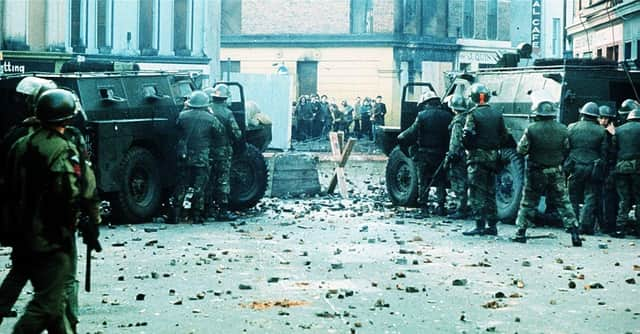Bloody Sunday: Judicial review granted over soldier prosecutions


Mr Justice Colton granted leave to seek a judicial review of the position reached by Northern Ireland’s Public Prosecution Service (PPS).
He listed the case for a full hearing over five days, beginning on September 20.
Advertisement
Hide AdAdvertisement
Hide AdThirteen people were killed when members of the Parachute Regiment opened fire on civil rights demonstrators in Derry on January 30, 1972. Another of those wounded on the day died later.
In 2010, the Saville Inquiry into the shootings established the innocence of all the victims of what became known as Bloody Sunday.
One former paratrooper, known only as Soldier F, is currently involved in committal proceedings to establish if he will stand trial for his alleged role.
He is charged with the murders of James Wray and William McKinney, as well as the attempted murder of at least four others.
Advertisement
Hide AdAdvertisement
Hide AdBut the siblings of five others killed on the day - Jackie Duddy, Michael Kelly, John Young, Michael McDaid and William McKinney - issued proceedings after prosecutions of another five ex-soldiers were ruled out.
Their lawyers claim the PPS wrongly excluded admissible evidence which should have been taken into account in the decision-making process.
It’s now been confirmed that leave to apply for judicial review was granted without a hearing, based on an assessment of the written arguments.
Fearghal Shiels, of law firm Madden & Finucane, said: “This application arises out of decisions taken in March 2019 by the PPS not to prosecute these soldiers, and a decision upheld after an internal review of that decision by the PPS in September 2020.”
Mr Shields added: The families warmly welcome this decision and look forward with confidence to the full hearing in the autumn.”